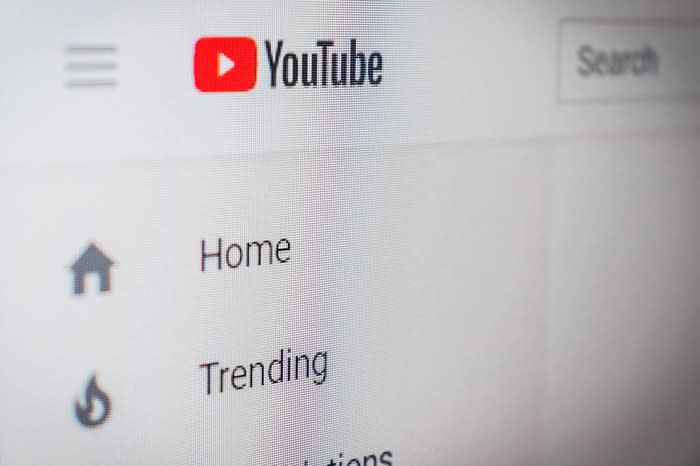YouTube's Never-Ending Copyright Battle
This article was first published by MyWallSt. Do you want access to 25 years of market-beating experience in one day? Find out more about MyWallSt's exclusive InPerson November event!
Last week, we witnessed the latest round in YouTube's struggle to arbitrate between creators and copyright holders. The struggle -- which seems to have been going on forever -- is not well understood outside of the site's community of users, but it may have major implications for the future of user-uploaded content on the web.
In a blog post released on Aug. 15, the streaming giant, which has been owned by Alphabet's (NASDAQ: GOOG) (NASDAQ: GOOGL) Google since 2006, said that it will begin to crack down on the "aggressive manual claiming of very short music clips used in monetized videos" that has become a staple of the site. This effectively means that the company will make it harder for copyright holders to make claims against creators that are perceived as illegitimate or unfair, allowing uploaders to fight back to protect their revenue streams.

Image source: Unsplash.
The new policy is based on a technique of disincentivization. In the past, a copyright holder, such as a record label, was given the opportunity to make money whenever some of its content was used in a monetized YouTube video, even if it was a fragment of a song coming from a car in the background. Now, any company with a copyright complaint has the right to block a video but not to make money from it, which YouTube hopes will discourage predatory claims against unintentional infringements.
On the surface, it appears that YouTube is making a decisive stand in favor of the individuals and channels that have helped to secure its place very close to the top of global web rankings. However, the change may have unintended consequences for the platform and its creators as, although record labels can no longer make money from user-uploaded content, they may still choose to block videos entirely.
Founded in 2005 by Steve Chen, Jawed Karim, and Chad Hurley -- all members of the so-called PayPal Mafia, a group of former employees or executives who have gone on to start other technology companies -- YouTube was a private start-up for about a year before the famous $1.65 billion Google acquisition. At the time, it was one of the world's fastest-growing websites and enjoyed a reputation as a fun and anarchic alternative to mainstream media. Today, YouTube is the second-most-visited website in the U.S. after Google.com itself, as well as a media behemoth in its own right. (The quick transition from cool, punky start-up to corporate giant somewhat parallels Facebook's rise to power).
All along the way, YouTube has been plagued by copyright problems. With 300 hours of content uploaded every single minute, the site has been a nightmare (as well, no doubt, as a lucrative source of income) for traditional media outlets eager to pursue claims. In response to the scale of the problem, the company developed its well-known Content ID system in 2007, which scans videos against a massive database of files for potential infringements. While the system certainly allows for more efficiency, it has also been criticized by creators for being opaque and unaccountable, powered by an irrefutable algorithm rather than sympathetic administrators and offering little opportunity to appeal.
These are not the only content problems YouTube is facing at the moment. For all its humorous channels, news outlets, and superstar entertainers, the platform also possesses a dark underside. From conspiracy theorists to political extremists -- not to mention the disturbing proliferation of violent videos disguised as children's shows -- YouTube's range of distressing content is so vast and diverse that the current algorithm cannot hope to suppress everything. CEO Susan Wojcicki has admitted as much, saying "It's not like there is one lever we can pull and say, 'Hey, let's make all these changes,' and everything would be solved."
The company's new policy will not actually make any significant changes to its Content ID rules. Record labels will still be able to draw revenue from any video that the algorithm deems a copyright violation. However, by pressing its thumb on the scales in favor of its own community of creators, YouTube is showing the world that sometimes Silicon Valley's big corporations will take a stand and safeguard the little guy.

Image source: MyWallSt.
One of these pot stocks is already +100% this year. What are you waiting for?
MyWallSt operates a full disclosure policy. MyWallSt staff currently hold long positions in Alphabet and Facebook. Read our full disclosure policy here.
More From The Motley Fool
Suzanne Frey, an executive at Alphabet, is a member of The Motley Fool's board of directors. Randi Zuckerberg, a former director of market development and spokeswoman for Facebook and sister to its CEO, Mark Zuckerberg, is a member of The Motley Fool's board of directors. The Motley Fool owns shares of and recommends Alphabet (A shares), Alphabet (C shares), Facebook, and PayPal Holdings. The Motley Fool has the following options: short October 2019 $97 calls on PayPal Holdings. The Motley Fool has a disclosure policy.
This article was originally published on Fool.com
